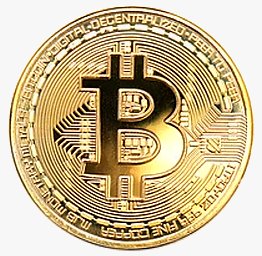Accredited InvestorsAltcoinAnatoli UnitskyAnti-Money Laundering (AML) In CryptoAPIArbitrageArtCoin TokenArticle DirectoryASICAuction Terminology GlossaryBasics of Stock Market InvestingBear MarketBest Crypto Payment Provider In the WorldBitcoinBlockchainBlockchain ConfirmationBlockchain Consensus MechanismBlockchain ForkBlockchain GlossaryBored Ape Yacht ClubBuild a Business That OutperformsBull MarketBuying SkyWay SharesByzantine Fault Tolerance (BFT) ExplainedCasascius CoinCentral Bank Digital Currency (CBDC)Centralized Crypto ExchangeCoinCoinsetCold WalletCollateralCommodity Futures Trading Commission (CFTC)Cross-Chain TechnologyCRUCrypto ExchangeCrypto GlossaryCrypto JokesCrypto Terms to KnowCrypto TickerCryptocurrencyCryptographyCryptojackingCryptounit BlockchainCryptounit GlossaryCryptounit ProgramdApp (Decentralized Application)Dead CoinDecentralized Exchange (DEX)Decentralized Finance (DeFi)Difference Between Bitcoin and EthereumDifferent Ways of Investing MoneyDigital CurrencyDistributed LedgerDo Your Own Research (DYOR)Dollar Cost Averaging (DCA)Dow Jones Industrial Average (DJIA)EncryptionERC-20ERC-721EthereumEvoScentFear Of Missing Out (FOMO)Fear, Uncertainty and Doubt (FUD)Fiat MoneyFNT Fintech CompanyGenesis BlockGlobal Unit PayGlossary of Banking TermsGlossary of Business TermsGlossary of Financial TermsHalvingHODLHot WalletHow Do I Start InvestingHow Rich is Satoshi Nakamoto?How to Create a BlockchainHow to Find Private InvestorsHow to Get Into FintechHow to Program Smart ContractsI Am Thrilled to Be a Part of This Global ProjectInitial Coin Offering (ICO)Initial Public Offering (IPO)Initial Token Offering (ITO)Innovation Basalt TechnologyInnovative Transportation TechnologiesInternational Bank Account Number (IBAN)Investing in Gold Mining StocksInvesting in Gold MiningJagerJoy of Missing Out (JOMO)Know Your Customer (KYC)LedgerLiquidity in CryptocurrencyMaker and Taker Fees in Crypto TradingMarket Capitalization (Market Cap)Meme CoinMetal Credit CardMetaMaskMillenials Now Have Access to Generational WealthMy Best Investment EverNew Digital EvolutionNFT GlossaryOff-Chain TransactionsOn-Chain TransactionsOpen Edition NFTPeer-to-Peer (P2P)Personal Loan GlossaryProbably the Best STO on the MarketProof of Stake (PoS)Real Estate Glossary of TermsReal Estate Investing GlossaryRebase TokenSecurities and Exchange Commission (SEC)Security Token ExchangesSecurity Token Offering (STO)Soulbound Decentralized Identities for Security TokensSoulbound ID Launch by Stobox Proves a SuccessSoulbound TokensStoboxStock Market GlossaryTestimonialsTether Platform and Token (USDT)UnitEx ExchangeUnitsky String TechnologiesUNTBUSDUValidatorWe Started Investing When We Were 25What are Blue Chip NFT?What are Blue Chip Stocks?What are Crypto Assets?What are Crypto Smart Contracts?What are CryptoPunks NFT?What are Digital Assets?What are Digital Collectibles?What are Gas Fees?What are Gas Wars?What are Hashmasks?What are Non Fungible Tokens?What are Non-Sufficient Funds (NSF)?What are Soulbound Tokens (SBT)?What are Stablecoins in Crypto?What are Transactions Per Second (TPS)?What are Utility NFTs?What are Utility Tokens?What Does Burning Crypto Mean?What Does Diamond Hands Mean?What Does Paper Hands Mean?What Does To The Moon Mean?What Does WAGMI Mean?What Happened to Satoshi Nakamoto?What is a 51% Attack?What is a Baby Boomer?What is a Backlink?What is a Banner?What is a Barcode?What is a Bid-Ask Spread in Crypto?What is a Block in Blockchain?What is a Block Reward?What is a Blockchain Address?What is a Blockchain Node?What is a Blockchain Oracle?What is a Blog?What is a Bond?What is a Bot?What is a Broker?What is a Business Accelerator?What is a Cash Cow?What is a Commercial Bank?What is a Commodity?What is a Con?What is a Credit?What is a Credit Limit?What is a Credit Rating?What is a Crypto Airdrop?What is a Crypto Bridge?What is a Crypto Scam?What is a Crypto Token?What is a Crypto Wallet?What is a Crypto Whale?What is a Crypto Winter?What is a Cryptocurrency Public Ledger?What is a Cryptocurrency Roadmap?What is a DAO?What is a Dark Pool?What is a Day Trader?What is a Dead Cat Bounce?What is a Default?What is a Derivative?What is a Digital Credit Card?What is a Fiscal Quarter?What is a Fungible Token?What is a Governance Token?What is a Grace Period?What is a Hard Fork?What is a Hot Wallet?What is a Hybrid Blockchain?What is a Hybrid PoW/PoS?What is a Joint Account?What is a Market Cap?What is a Merkle Tree in Blockchain?What is a Mining Farm?What is a Nonce? What is a PFP NFT?What is a POS System?What is a Prepaid Card?What is a Private Blockchain?What is a Private Key?What is a Public Blockchain?What is a Public Key?What is a Reserve Currency?What is a Ring Signature?What is a Routing Number?What is a Rug Pull in Crypto?What is a Safe Deposit Box?What is a Satoshi?What is a Security Token?What is a Seed Phrase?What is a Shitcoin?What is a Sidechain?What is a Soft Fork?What is a Spot Market?What is a State Bank?What is a SWIFT Code?What is a Tax Identification Number (TIN)?What is a Time Deposit?What is a Transaction Account?What is a Variable Interest Rate?What is a Virtual Assistant (VA)?What is a Virtual Card?What is a Virtual Currency?What is a Visa Card?What is a Whitelist in Crypto?What is a Whitepaper?What is Accounts Payable (AP)?What is AMA in Crypto?What is Amortization?What is an Accrual?What is an ACH Transfer?What is an Actuary?What is an Addendum?What is an Algorithm?What is an Angel Investor?What is an Annuity?What is an Asset?What is an ATM?What is an Atomic Swap?What is an Audit?What is an Avatar?What is an EIN?What is an Embargo?What is an Entrepreneur?What is an IDO (Initial Dex Offering)?What is an Interest Rate?What is an Internet cookie?What is an Investment Bank?What is an NFT Drop?What is an NFT Floor Price?What is an Ommer Block?What is an Orphan Block?What is an Outstanding Check?What is an Overdraft?What is Artificial Intelligence (AI)?What is B2B (Business-to-Business)?What is B2G (Business-to-Government)?What is Bartering?What is Bitcoin Dominance?What is Bitcoin Pizza Day?What is Blockchain Immutability?What is Blockchain Used For?What is BRICS?What is Business-to-Consumer (B2C)?What is C2C (Customer to Customer)?What is Capitalism?What is Catfishing?What is CFD Trading?What is Check Kiting?What is Cloud Mining?What is Communism?What is Content Marketing?What is Decentralization in Blockchain?What is DeFi in Crypto?What is Delisting?What is Depreciation?What is Digital Marketing?What is Diversification?What is Double Spending?What is Dumb Money?What is Dumping?What is Earnings Per Share (EPS)?What is Economics?What is Email Marketing?What is Equity?What is Etherscan?What is Fintech?What is Foreign currency?What is Forex?What is Fundamental Analysis (FA)?What is GameFi?What is Generative Art NFT?What is Gwei?What is Hard Currency?What is Hash Rate?What is Hashing in Blockchain?What is Inflation?What is Initial Game Offering (IGO)?What is Interest?What is Interest Income?What is Mainnet?What is Mastercard?What is Metaverse in Crypto?What is Mining in Cryptocurrency?What is Minting NFT?What is Mobile Banking?What is Money Laundering?What is NFT Alpha?What is NFT Metadata?What is NFT Rarity?What is NGMI Meaning?What is Nominal Interest Rate?What is Online Banking?What is Open-End Credit?What is OpenSea NFT Marketplace?What is Personal Identification Number (PIN)?What is Play-to-Earn?What is Polygon?What is Proof of Authority (PoA)?What is Proof of Work (PoW)?What is Public Key Cryptography?What is Pump and Dump?What is Quantum Computing?What is Refinancing?What is Retail Banking?What is Ripple?What is Sharding?What is Slippage in Crypto?What is Smart Money?What is Solvency?What is Soulbound ID?What is SSL?What is Staking in Cryptocurrency?What is Technical Analysis (TA)?What is Testnet?What is the Ask Price?What is the Better Business Bureau (BBB)?What is the Bid Price?What is the Dark Web?What is the InterPlanetary File System (IPFS)?What is the Gold Standard?What is the Lightning Network?What is the Prime Rate?What is the Sandbox?What is the Secondary Market?What is the World Bank?What is Tier 1 Capital?What is Tokenomics?What is TRC-20?What is Universal Banking?What is Unspent Transaction Output (UTXO)?What is Usury?What is Volatility in Crypto?What is Wash Trading?What is Web3?What is Whisper?What is XRP?What is Zero-Knowledge Proof (ZKP)?Who is Beeple?Who is Satoshi Nakamoto?Who is Vitalik Buterin?Why Tokenization is a Safe HavenWhy You Should Try Your Hand at Trading
Coin
- Home
- Crypto Glossary
- Coin
Crypto coins have become a topic of great interest in recent years, attracting the attention of investors, traders, and even everyday consumers. Despite their growing popularity, there remains a significant amount of confusion surrounding what exactly crypto coins are and how they function.

What is a Coin?
A coin, in the context of cryptocurrency, is a digital asset that operates as a decentralized form of currency. Unlike traditional currencies, which are issued and controlled by a central authority, coins use blockchain technology to secure and verify transactions, making them decentralized and not subject to the control of any single entity.
The most well-known example of a coin is Bitcoin, which was created in 2009 and is widely considered to be the first decentralized digital currency. Since then, hundreds of other coins have been created, each with their own unique features and uses.
Coins typically function as a medium of exchange, allowing users to purchase goods and services with them. They also often act as a store of value, with their value being determined by market supply and demand. Some coins are designed to be used for specific purposes, such as for privacy or for fast and cheap payments.
One of the key features of coins is their use of blockchain technology. This technology is a decentralized ledger that records all transactions made with the coin. Each transaction is verified by a network of computers, making it extremely secure and resistant to fraud and hacking.
In addition to their use as a currency, coins can also be bought and sold as investments. Many people see coins as an alternative to traditional investments such as stocks and bonds, and some have made significant profits by investing in coins at an early stage.
Coin vs Token: What is the Difference?
Coins and tokens are two commonly used terms in the world of cryptocurrency. However, despite the similar names, these two concepts are fundamentally different.
Coins refer to a digital asset that operates as a decentralized currency. The most well-known example is Bitcoin. Coins typically use blockchain technology to secure and verify transactions, and they often function as a store of value and medium of exchange.
Tokens, on the other hand, represent a wider range of assets that can be digital or physical. They are created on top of existing blockchain platforms such as Ethereum and are used to represent everything from stocks to commodities. Tokens can also be used for utility purposes, such as for access to a specific application or service.
Another key difference between coins and tokens is their underlying technology. Coins have their own blockchain technology, while tokens are built on existing blockchain platforms. This means that coins have their own unique code and infrastructure, while tokens use the code and infrastructure of the blockchain platform they were created on.
Coins also have a wider range of applications compared to tokens. For example, in addition to being used as a currency, coins can also be used as a store of value and investment instrument. Tokens, on the other hand, are typically used for specific purposes such as representing assets or providing access to a service.
How Crypto Coins Work?
At the core of crypto coins is the technology of blockchain. A blockchain is a decentralized ledger that records all transactions made with the coin. Each transaction is verified by a network of computers, making it secure and resistant to fraud and hacking. The decentralized nature of the blockchain means that no single entity has control over the network, making crypto coins a truly decentralized form of currency.
One of the key benefits of crypto coins is their security. The use of blockchain technology makes it extremely difficult for transactions to be tampered with or altered. Additionally, crypto coins offer anonymity, as users can make transactions without revealing their identity.
Another benefit of crypto coins is their speed and efficiency. Transactions made with crypto coins are processed quickly and without the need for intermediaries such as banks. This can result in lower transaction fees and faster processing times.
In conclusion, crypto coins offer a range of benefits including security, speed, and efficiency. The decentralized nature of crypto coins and the use of blockchain technology make them an attractive option for individuals and businesses alike. Whether you're looking to make purchases, invest, or simply explore the world of digital currencies, crypto coins are definitely worth considering.
Related Articles

Bitcoin
The digital currency known as Bitcoin is operated through a distributed computer network. However, in a larger sense, the term "Bitcoin" is frequently used to refer to a number of other concepts.

Blockchain
Blockchain transactions take place on a peer-to-peer network of geographically dispersed computers (nodes). Each node keeps a copy of the...

Ledger
A ledger is either a physical book or a digital computer file in which monetary and financial transactions are noted down and recorded - either as debits or credits.

What is a Crypto Token?
In the cryptocurrency world, the words "coins" and "tokens" are sometimes used interchangeably, however they refer to different things. They are easily confused as both fall under the...

Ethereum
Ethereum is a decentralized global software platform based on blockchain technology. It is internationally known for its own cryptocurrency, ether (ETH).
- Home
- Crypto Glossary
- Coin